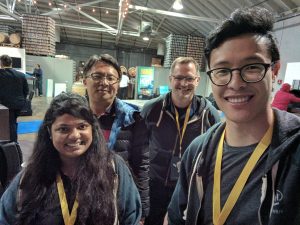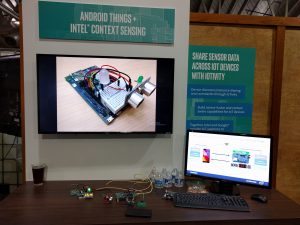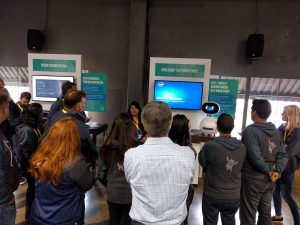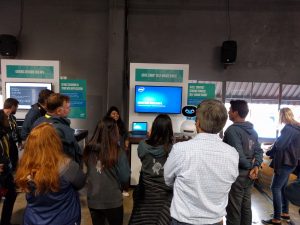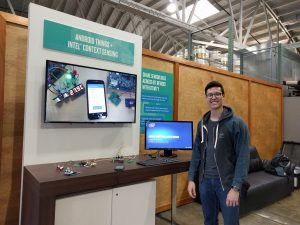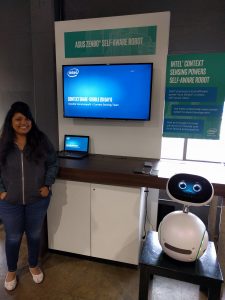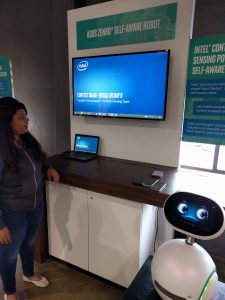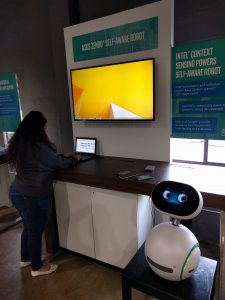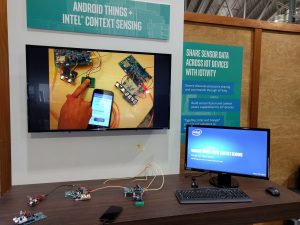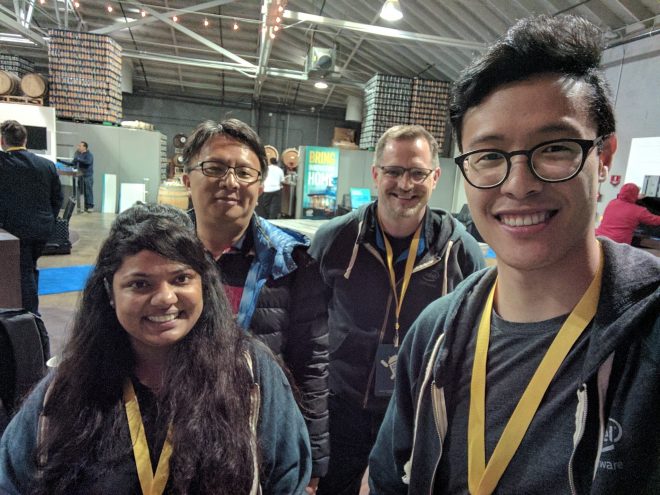I love going to developer shows and talking to software engineers about the toolsets our teams develop at Intel. For me, since I spend so much of my time in meetings and planning sessions, it is a refreshing opportunity to re-engage with the actual use cases and the actual developer customers who use our tools. Last week, I took 5 engineering teams to Google I/O Intel Day Zero in Santa Clara.
Since I don’t often get a chance to spend 4-5 hours uninterrupted seeing my great engineering team members in action, I also welcome the time to spend hands-on with our technical tools, learning the most recent innovations from the people who actually write the code and debug the software.
This is “developers only” — so no marketing, no strategy, no business development and no management people (occasionally we make an exception for senior managers who want to see things in action — that’s how I snuck in). But I made this a priority, because for me, this is a great opportunity to keep my fingers on the pulse, to keep learning, and to re-center my management and planning work around what really matters — Intel’s developer customers and the positive differences that Intel tools can make for them. I get to hear first hand how Intel tools accelerate their businesses and power their applications. And yes, I also get to answer — in person and directly — awkward questions about performance and bugs (that’s why I have smart technical people with me). 🙂
The first year I went to the Google I/O Day Zero, we took one demo team. Last year, I took two teams to the show and learned so much from the questions I heard that I came back with a determination to change how we engage with customers in future software launches. (Here’s a video from last year) This year, we went all out, and we had 5 demos from multiple VCP teams (there were 23 hand-chosen Intel demos, so VCP had a solid 1/4 of the demo floor).
Every demo person / engineer on the show floor was swarmed by hundreds of developers who are genuinely interested in our technologies and SDKs and want to understand how to be more effective in their use of current platforms and algorithms. I found it invigorating.
VCP team demos included the following:
- GPA Demo: Intel® Graphics Performance Analyzers, featuring I-Illusion’s Space Pirate Trainer (Giselle Gomez, Pranati Tewari)
- Adaptive Learning: Intel® Context Sensing SDK with Adaptive Learning from Intel Labs (Vandita Venuturapalli, Nese Alyuz Civitci)
- Automotive Demo: In-car sensors, demonstrating Jungo algos in ISS dev, which included iris recognition, facial identity and tracking of individual users (Shubha Ramani)
- Smart Surveillance: Deep learning / inference to demo gait recognition and validate identity via biometrics built using new Intel OpenVINO (Yi Ge)
- IOT Augmented Reality: Intel Context Sensing SDK + Google Arcore SDK for IOT visualization, data collection, storage, sharing and analysis of data. (Ojas Sawant, Aditya Subramanyan)
